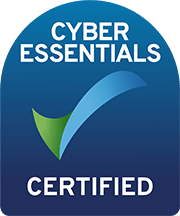Self-Employed Individuals and Employers have 90 days to inform HMRC that they have over-claimed the SEISS or the CJRS grants and repay any excess before penalties apply
CJRS Grants
Any incorrect CJRS grant claims in which the employer has over-claimed the amount due can be corrected in a later CJRS claim. If the employer has submitted their final CJRS claim there is a facility to repay HMRC online which has been in place since 26 June.
If the employer has under-claimed the CJRS grant, the extra amount of grant due needs to be set-up directly by HMRC, and the employer should not adjust the amount claimed in a later CJRS claim.
A CJRS grant should be repaid to HMRC if the funds were not used within a reasonable period to reimburse the employer’s costs relating to furloughed employees, such as furloughed wages, employer’s class 1 NIC and employer’s contribution to a workplace pension.
SEISS Repayments
The self-employed income support scheme (SEISS) grant is calculated by HMRC, so a valid claim can only be marginally overpaid if HMRC has made an error.
The HMRC guidance says it will work out if the self-employed individual is eligible for a SEISS grant and contact them to invite them to apply. However, HMRC cannot check the three current-period conditions for the SEISS grant:
- Whether the business activity has been adversely affected by the coronavirus pandemic
- If the individual traded in 2019/20 (if the tax return for that year has not been submitted)
- Whether the self-employed individual intends to continue to trade in 2020/21
If any of those conditions are not met the SEISS grant has been incorrectly claimed, and the self-employed individual will need to tell HMRC as soon as possible and repay the overpaid amount.
Agents cannot tell HMRC about the over-claimed grant on behalf of their client, as the disclosure must be made using the same government gateway user ID and password that was used to claim the original SEISS grant.
Notification Period
If you have been paid a grant which you were not entitled to and have not repaid it, you should notify HMRC within the notification period. The notification period ends on the latest of:
- 20 October 2020
- 90 days after you receive the grant
If you over-claimed a CJRS grant and have not repaid it, you should notify HMRC within the notification period. The notification period ends on the latest of whichever date applies below:
- 90 days after you receive the CJRS grant you are not entitled to
- 90 days after the day circumstances changed so that you were no longer entitled to keep the CJRS grant
- 20 October 2020
Penalties
If the taxpayer does not repay HMRC the amount of coronavirus support payment over-claimed, HMRC will raise an assessment of tax equal to the over-claim. This assessment can be appealed.
Where the taxpayer fails to notify HMRC of the over-claimed coronavirus support payment within the 90-day period HMRC will impose a penalty under the failure to notify rules. The penalty is calculated at 30% to 100% of the over-claimed amount, for an unprompted disclosure, but will be set at 50% to 100% of the over-claimed amount for a prompted disclosure.
Therefore, a taxpayer who is investigated by HMRC and is found to have incorrectly claimed a CJRS or SEISS grant will be required to repay 150% to 200% of those funds.
We are ourselves issuing regular updates via our website and e-mail cannons. If you are not receiving these and would like to be added to the list please e-mail [email protected] with the subject “Add me to your COVID-19 e-mails”.


